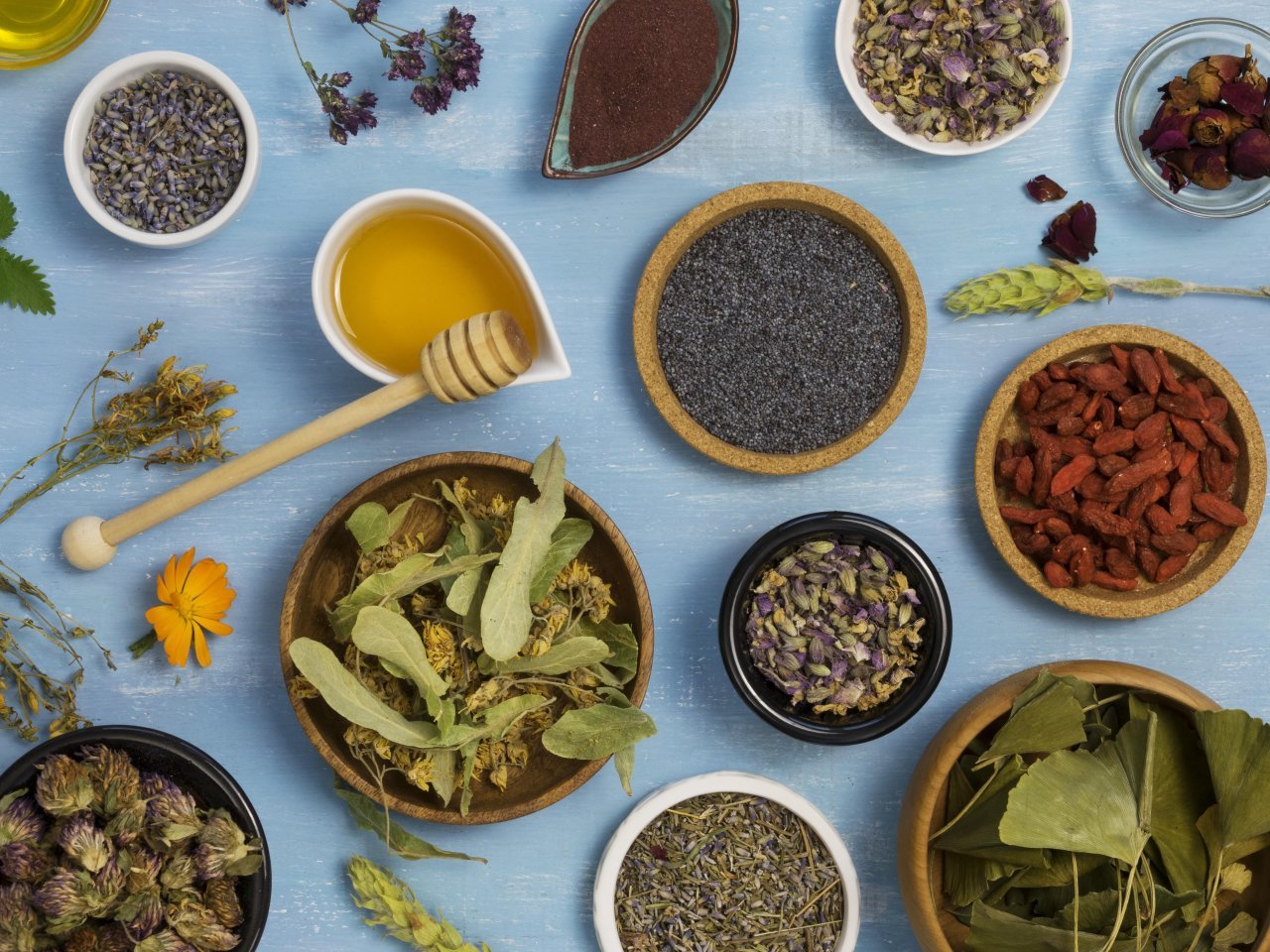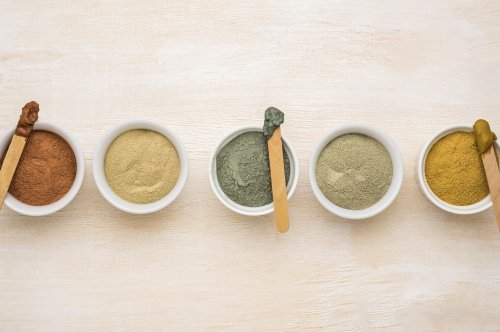How Ayurvedic Herbs Boost Your Health: A Comprehensive Guide to Nature's Best Remedies

How Ayurvedic Herbs Boost Your Health: A Comprehensive Guide to Nature's Best Remedies
In today’s fast-paced world, people are increasingly turning to natural solutions to maintain their health, and Ayurvedic herbs have garnered considerable attention for their remarkable healing properties. Originating in India over 5,000 years ago, Ayurveda is an ancient system of medicine that emphasizes holistic healing and the balance of mind, body, and spirit. The foundation of Ayurveda lies in its use of herbs and plants to restore health and wellness.
In this comprehensive guide, we’ll delve into how Ayurvedic herbs can boost your health, their various health benefits, and how they work to maintain balance and vitality in your body. Whether you are dealing with specific health issues or simply want to maintain overall well-being, Ayurvedic herbs can offer effective and natural solutions.
1. Understanding Ayurveda and Its Approach to Health
Ayurveda is a Sanskrit word that translates to "the science of life," focusing on achieving harmony within the body, mind, and spirit. Central to Ayurvedic medicine is the concept of doshas, which are three vital energies believed to govern our physical, mental, and emotional states:
- Vata (Air and Ether): Responsible for movement, circulation, and communication.
- Pitta (Fire and Water): Governs digestion, metabolism, and transformation.
- Kapha (Earth and Water): Controls structure, stability, and immunity.
Health, according to Ayurveda, is the balance of these doshas. When one or more doshas become imbalanced, it can lead to illness. Ayurvedic herbs are used to bring the doshas back into equilibrium, addressing underlying causes of diseases rather than just treating symptoms.
2. How Ayurvedic Herbs Boost Your Health: Key Benefits
A. Promoting Digestive Health
In Ayurveda, digestion is considered the cornerstone of good health. Healthy digestion ensures that the body properly absorbs nutrients and eliminates toxins. Ayurvedic herbs are particularly beneficial for improving digestion and detoxifying the body.
- Triphala: A powerful combination of three fruits—amla (Indian gooseberry), haritaki, and bibhitaki—triphala is renowned for its digestive benefits. It is known to promote regular bowel movements, improve absorption of nutrients, and act as a gentle detoxifier. Regular use of Triphala helps in cleansing the digestive system without causing harm.
- Ginger: A common herb in Ayurvedic medicine, ginger stimulates digestion by increasing the production of digestive enzymes. It helps relieve nausea, indigestion, and bloating while improving appetite.
- Cumin: Another herb that boosts digestion, cumin aids in stimulating the production of bile and digestive juices, facilitating the digestion of fats and proteins. It is also known to reduce bloating and gas.
Incorporating these herbs into your daily routine can significantly improve digestion and detoxification, preventing issues such as indigestion, constipation, and bloating.
B. Strengthening Immunity
Ayurvedic herbs are highly effective in boosting immunity and protecting the body from infections and diseases. These herbs work by enhancing the body's natural defense mechanisms and strengthening the immune system.
- Tulsi (Holy Basil): Revered in Ayurvedic medicine, tulsi is a powerful adaptogen with antibacterial, antiviral, and anti-inflammatory properties. It helps strengthen the immune system and protect the body from harmful pathogens. Tulsi is commonly used to combat colds, flu, and respiratory infections.
- Amla (Indian Gooseberry): Rich in vitamin C and antioxidants, amla is known to enhance immune function by boosting the production of white blood cells. It also improves the body’s ability to fight infections and prevent illness.
- Guduchi: This herb is highly regarded for its immune-boosting properties. It helps detoxify the body, promotes liver function, and increases the body’s resistance to diseases.
Including these herbs in your diet can enhance your body's ability to fight off infections, maintain optimal immune function, and recover from illness faster.
C. Balancing Stress and Mental Health
Mental and emotional well-being are integral components of overall health. Stress, anxiety, and depression can have a profound impact on physical health, and Ayurvedic herbs are designed to address these issues naturally.
- Ashwagandha: This adaptogenic herb is widely used in Ayurveda to reduce stress, anxiety, and fatigue. Ashwagandha helps balance cortisol levels (the stress hormone) and promotes relaxation. It is also known to enhance sleep quality and boost overall vitality.
- Brahmi: Known as the "brain herb," brahmi is used to improve memory, concentration, and mental clarity. It calms the nervous system and supports cognitive function, helping to manage stress and anxiety naturally.
These Ayurvedic herbs offer natural solutions for those seeking to improve mental health and reduce stress, providing a balanced mind and improved emotional resilience.
D. Anti-inflammatory and Pain-Relieving Properties
Chronic inflammation is linked to several health conditions, including arthritis, heart disease, and diabetes. Ayurvedic herbs have long been used to address inflammation and provide relief from pain.
- Turmeric: Turmeric is one of the most powerful anti-inflammatory herbs in Ayurveda, thanks to its active compound, curcumin. Curcumin has been shown to reduce inflammation and relieve pain, especially in conditions like arthritis and joint pain.
- Boswellia: Also known as frankincense, Boswellia is a potent anti-inflammatory herb that helps in reducing pain, stiffness, and inflammation in conditions like osteoarthritis.
These herbs, when used regularly, can alleviate pain and inflammation, improving mobility and quality of life, especially for those suffering from chronic conditions.
E. Anti-aging and Skin Health
Ayurveda also emphasizes the importance of radiant and youthful skin. The antioxidants and anti-inflammatory properties of Ayurvedic herbs help protect the skin from premature aging and environmental damage.
- Amla (Indian Gooseberry): Rich in vitamin C, amla promotes healthy collagen production, which is essential for skin elasticity and firmness. It also helps fight oxidative stress, which leads to premature aging.
- Neem: Known for its antibacterial and antifungal properties, neem is commonly used to treat acne, eczema, and other skin conditions. It purifies the blood, detoxifies the body, and promotes healthy, glowing skin.
- Sandalwood: Sandalwood is used to soothe and cool the skin, making it ideal for conditions like sunburns, rashes, and skin irritations. It also has anti-aging properties that help maintain youthful skin.
By incorporating these herbs into your skincare routine, you can promote glowing, healthy skin while reducing signs of aging.
F. Enhancing Overall Vitality and Longevity
Ayurvedic herbs are not just for treating ailments but also for boosting overall vitality and promoting longevity. Many Ayurvedic herbs are considered rasayanas, or rejuvenating substances, which are believed to enhance physical strength, mental clarity, and longevity.
- Ashwagandha: Known as a potent rasayana, ashwagandha improves energy levels, supports the adrenal glands, and increases stamina. It is considered a key herb for promoting longevity and vitality.
- Shatavari: This herb is particularly beneficial for women’s health, promoting hormonal balance, improving fertility, and enhancing overall reproductive health. It also acts as a general rejuvenator, supporting the body’s vitality and endurance.
These herbs support the body's natural ability to thrive, enhancing overall health and vitality.
3. How to Incorporate Ayurvedic Herbs Into Your Daily Routine
Integrating Ayurvedic herbs into your lifestyle can be simple and rewarding. Here are some ways to do so:
- Herbal Teas: Many Ayurvedic herbs, such as ginger, tulsi, and chamomile, can be brewed into soothing herbal teas. Drinking these teas daily can help with digestion, stress relief, and immunity.
- Capsules and Powders: Ayurvedic herbs like ashwagandha, triphala, and turmeric are available in capsule or powder form. You can take these supplements according to the recommended dosage for optimal health benefits.
- Topical Applications: For skin-related concerns, herbs like neem, sandalwood, and turmeric can be applied topically as pastes or creams. These herbs can soothe the skin, reduce inflammation, and promote healing.
- Infused Oils: Certain Ayurvedic herbs are also available in oils. For example, Brahmi oil can be massaged into the scalp to improve mental clarity and reduce stress.
4. Conclusion: The Power of Ayurvedic Herbs for Health and Well-being
Ayurvedic herbs have been used for thousands of years to maintain health, heal the body, and promote a balanced, harmonious life. Whether you are looking to improve digestion, enhance immunity, reduce stress, or rejuvenate your skin, Ayurvedic herbs provide powerful, natural solutions that can complement modern medicine and improve your overall quality of life.
By incorporating these herbs into your daily routine, you can experience the benefits of Ayurveda, which not only focuses on treating symptoms but also seeks to maintain long-term health and wellness. Always consult with a qualified Ayurvedic practitioner or healthcare provider before starting any new herbal regimen, especially if you have pre-existing health conditions or are pregnant.






